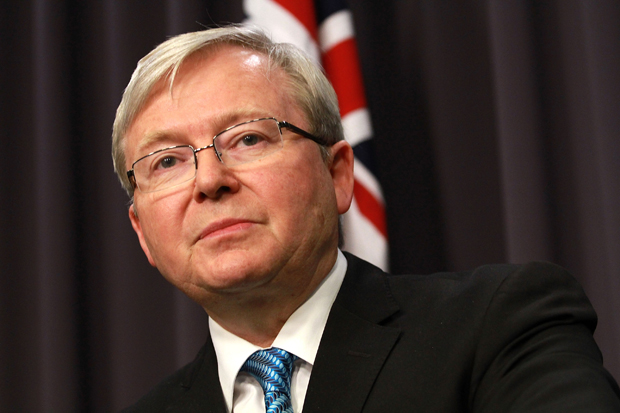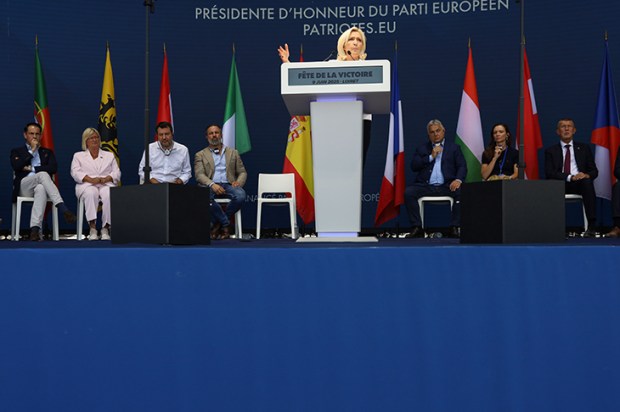Most people learn from their mistakes and failures — even politicians. Some of us even get a second chance to prove the lessons were learned. At the heart of Menzies at War, Anne Henderson provides an insight into how Australia’s most successful federal MP set about learning the lessons of his first, short and unhappy period as Prime Minister.
But this book offers more than this tale of redemption. It provides a skilfully researched and written — and compelling — account of an important decade in the nation’s history. And, along the way, Henderson demolishes a few left-wing myths to boot. When you read this book, you’ll marvel at the parallels to be drawn with more recent political events and again understand the lessons of history.
We learn about the dysfunction of a minority government in a hung Federal Parliament as well as an aloof, some said arrogant, party leader who, while focused on national and international issues, forgot the first lesson of politics: engage your team. There is the account of the internal party white-anting of a prime minister and the jockeying of other leadership aspirants; and the betrayal of government — and of their own electorates — by conservative Independent MPs who opted to put Labor into power. Who says history
is dull?
For those who think that factionalism and personality politics are recent barnacles on our political system, this book will cause you to think again. It includes perhaps the most outrageous public attack — motivated of course by personal malice — upon a prime minister by any factional leader in our history: Earle Page’s claim that Menzies lacked the ‘courage, loyalty and leadership’ to be PM. Page effectively called Menzies a coward for not serving in the first world war. And he did so at a time when the wounds of that conflict still greatly affected families across the nation and when it was clear that the world would again soon be at war. And to underline his message, Page then took the Country party out of the coalition, leaving Menzies with a minority government. Compared to Earle Page, the likes of Paul Howes and Mark Arbib were mere ‘pussies’.
Historian Stuart Macintyre claims that the United Australia party failed to equip Australia to meet the challenges of the coming second world war. But Henderson sets the record straight, pointing to Lyons and Menzies’s efforts to secure what today is Australia’s most important defence alliance with the US.
Menzies was a man for his times. With seven victories on the trot, he was popular and in touch with the electorate. Yet the Left continues to disparage Menzies and his achievements, representing him all too often as some sort of ‘imperial dinosaur’. That’s hard to reconcile with a man whose government established the Colombo plan, introduced our first ‘no fault’ divorce laws and provided access to university education for hundreds of thousands of Australians through the establishment of the Commonwealth Education Scholarships Scheme. A scheme, moreover, that benefited many of his later critics.
This is a book about rejection, reassessment and recovery. It tells the story of Menzies’s resignation as Prime Minister — and the public and personal blow to ego and pride that accompanies such a decision. But it also describes how, after a couple of months of self-doubt and uncertainty, Menzies picked himself up and started on the second, more successful, stage of his federal career.
Menzies reassessed his political beliefs and, through radio, set about communicating them to the public. The use of commercial radio, and not the ABC, was regarded as clever and novel. Perhaps it was the equivalent of Kevin Rudd’s use of social media in the lead-up to the 2007 election — although one suspects Menzies could use a radio broadcast and be far more direct than Kevin could be using just 140 characters.
Then Menzies took back his party — firstly regaining the leadership, followed by creating a new political party. Bear in mind that the structure Menzies put in place in 1944 has largely survived both the passage of time and the attempts of various power brokers to manipulate it. It’s a structure that has delivered the federal Liberal party more years in power than in opposition.
And then Menzies tackled the really hard part: winning elections. But having lost his first as Liberal leader in 1946 he wasn’t to look back and will remain an exception — if not an oddity — in Australian politics: a prime minister who chose his own time of leaving office.
Menzies has been a favourite of mine. His resilience and persistence, as described in this book, were certainly a comfort as I worked through 16 years of opposition in State Parliament. His philosophy of course resonated, but so too his pragmatism. Menzies is reported to have once said ‘It must be great to be an ideologue — it saves time thinking!’
He believed that, as circumstances changed, so too should your approach to an issue. He was not about applying yesterday’s fix to tomorrow’s problem. Like him, I firmly embraced the view that the Liberal party should represent those who weren’t organised, those without a voice — those ignored and unrepresented by the unions and big business — Menzies’s famous ‘forgotten people’.
But above all I remain attracted to Menzies because his is a great Australian success story. The boy from the small country town who, through dint of scholarship and hard work, ends up a leader of the Victorian Bar, spends six years in State Parliament becoming Deputy Premier, before beginning a Federal career that would span 32 years and see him become our longest serving prime minister.
Winston Churchill said that ‘History will be kind to me for I intend to write it.’ And he did, with prodigious effort and results. Menzies wrote too little. But people like Allan Martin, Heather Henderson and others have helped fill the void. So too, in this volume, has Anne Henderson. This is a book that fills in some blanks, corrects the errors of others — but also importantly reminds us of the real character and genius of Robert Gordon Menzies.
Got something to add? Join the discussion and comment below.
Barry O’Farrell was NSW premier from 2011 to 2014. This is an extract from his address to launch Anne Henderson’s Menzies at War (NewSouth) at the Gallipoli Club in Sydney on 1 July.
You might disagree with half of it, but you’ll enjoy reading all of it. Try your first month for free, then just $2 a week for the remainder of your first year.












